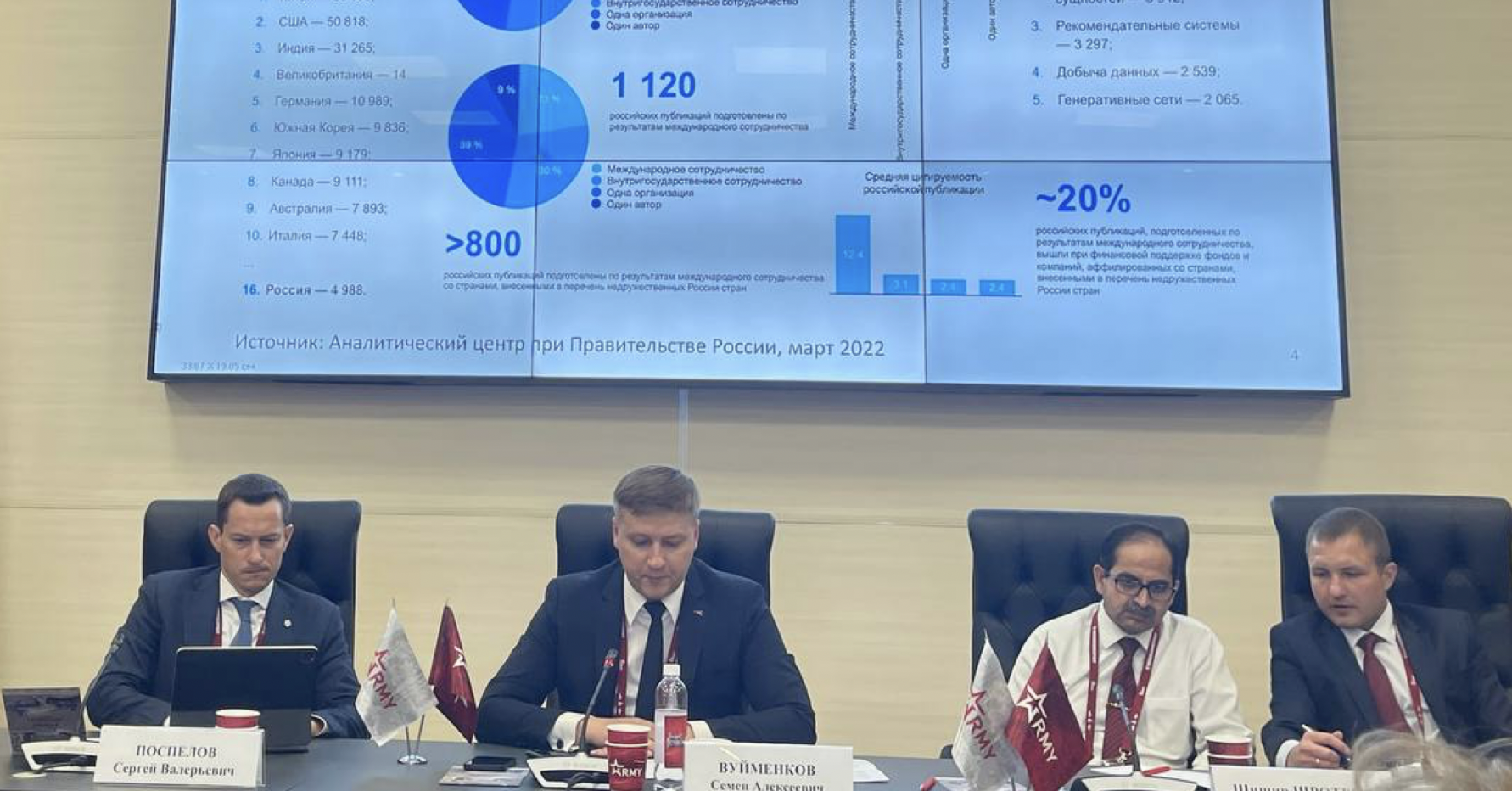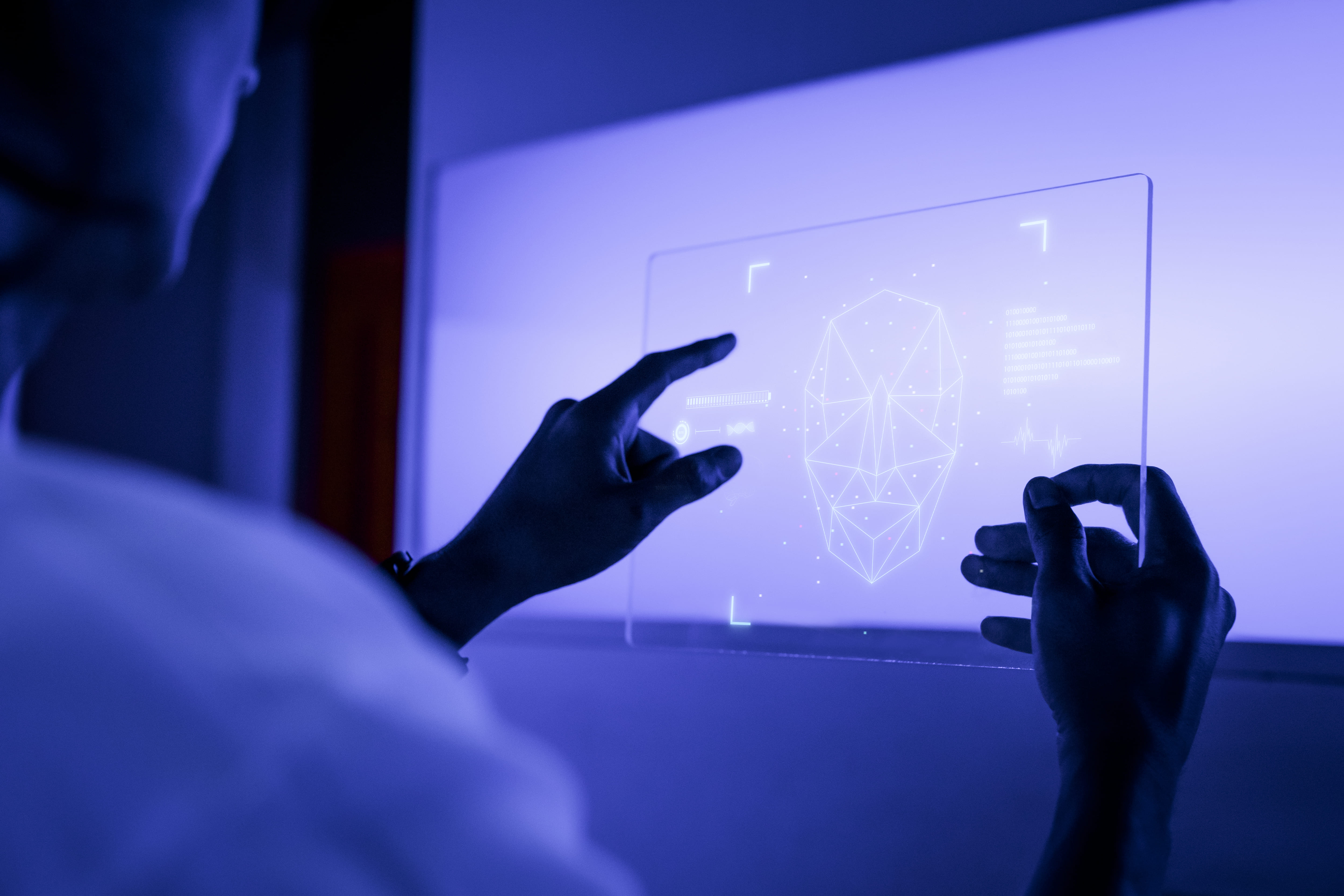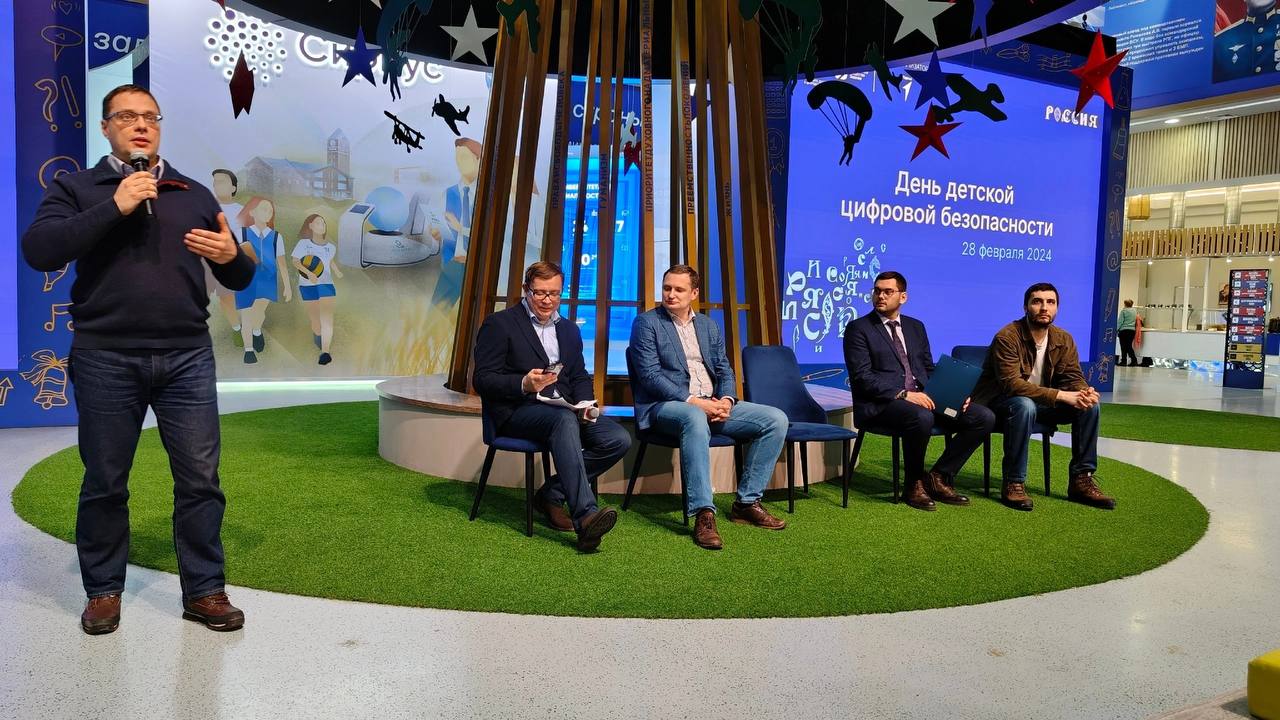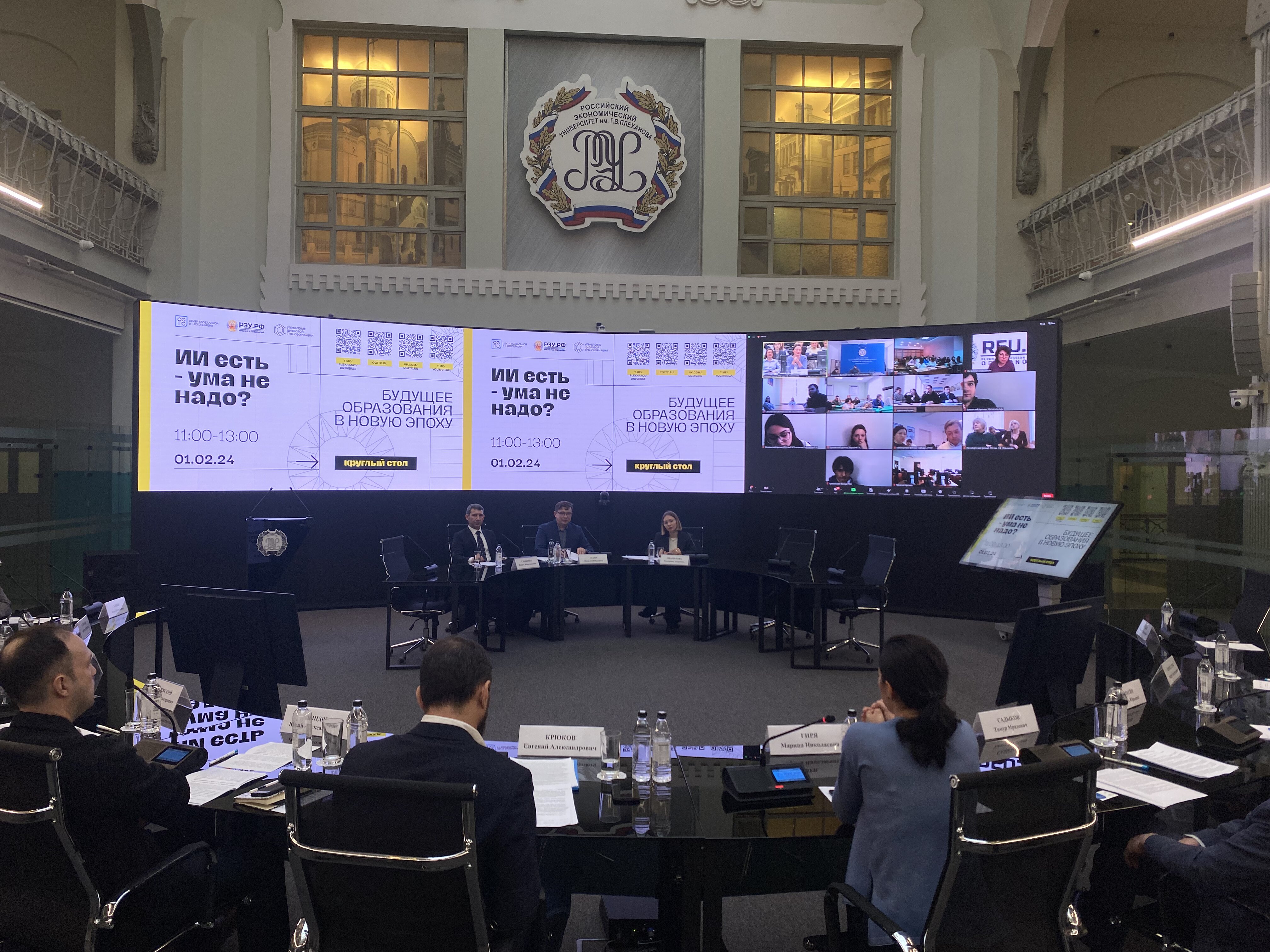General Director of the International Research Institute for Advanced Systems and the Institute for Economic Strategies of the Russian Academy of Sciences Alexander Ageev, Senior Researcher at AI Research Center “Strong AI in Industry” of ITMO University Alexey Dukhanov, iFlyTek representative Zhang Tian, Research Scientist at Skoltech Richik Sengupta, board member at ANO NPII Semen Vuymenkov, Executive Secretary of the CSTO PA Sergey Pospelov, Science and Technology Counsellor at the Embassy of India in Russia Shishir Shrotriya, and researcher at the Center for International Security and Strategy of Tsinghua University (PRC) Zhu Rongsheng joined the session, which was moderated by Maxim Fedorov, Rector of Sirius University of Science and Technology.
The experts shared their opinions on the promising directions for international cooperation in the field of AI as well as on the projects that would be mutually beneficial to scientists from Russia and friendly countries. It was noted that tectonic geopolitical shifts had been pushing the Russian scientific community toward revising old chains of communication with foreign partners and establishing some new ones.
Zhang Tian touched upon the topic of cooperation between Russian and Chinese companies. “This field provides Russian and Chinese companies with plenty of growth points. What matters is maintaining and developing contacts as well as creating new joint products for end clients,” she concluded, citing the successful track record of cooperation between iFlyTek and Russia-based VK and FSUE NAMI as an example.
Alexey Dukhanov placed special emphasis on education—one of the pillars of every scientific community. He stressed that the Russian educational system has a lot of advantages, which are not to be lost, such as the fundamental nature of school and university education, multiculturalism, and whole person education. “There are several requirements that should be met to ensure the sovereignty of education in AI and adjacent fields. The first one is the preservation of peculiar features of Russian education; the second one, reducing the dependency on external resources and ideologies; the third one, creating an open national network of integrated interdisciplinary data. And the most important one is maintaining uninterrupted and constructive communication between all participants in the educational process,” he said. It is also important to keep in mind the need to create attractive job environment not only for graduates but also for the very teachers, with particular attention paid to regional research centers.
Richik Sengupta proposed to foster cooperation between universities located in BRICS countries, for example, through establishing summer schools that would allow students to exchange experience in various tech fields, such as quantum computing and AI. He also pitched the idea of giving lecture courses in member countries to BRICS universities’ professors, which would help to strengthen the bonds between scientific communities.
Semen Vuymenkov agreed with the idea of turning the BRICS countries into a new regional technological zone. “The alignment of forces in the field of AI is mainly Westcentric, which is clear from the number of tech companies and, generally, from citation counts. Most articles on AI published in Russia are written in collaboration with our counterparts from unfriendly countries. The AI technology development infrastructure should be consolidated in Russia. The global community is currently working on integrating industry-specific solutions into the cross-industry ones (dual-use integrations), which, however, necessitates intercountry harmonization of norms, rules, and standards inside the technological zone. Therefore, international cooperation is needed indeed,” he added.
Shishir Shrotriya spoke on India’s experience in the field of AI technology development, drawing particular attention to the social dimension, startup promotion, and various areas of AI application. The expert concluded his speech by proposing to create a Russia-India AI business accelerator.
Zhu Rongsheng touched upon the crucial topic of military use of artificial intelligence: “Today AI technologies are the most groundbreaking ones. Although they are beneficial, in many ways, they create a threat to national security. Political analysts are becoming increasingly concerned because the integration of AI technologies into the military field, their distribution, and irresponsible behavior could undermine global security. Modern warfare is more and more associated with the use of AI, and that’s dangerous.” He added that such complicated challenges necessitate the creation of a “community with a shared future for mankind.” The speaker stressed that it doesn’t take long for moral norms, technical standards, and other “soft” regulations to appear, but there is a substantial lack of “hard” law, legal norms, and principles. He pointed out that countries should meet the new challenges together and create an open regulatory system.
Sergey Pospelov supported the idea that the AI field requires a set of uniform rules and approaches, especially when it comes to its military use. The use of AI is no longer related solely to commercial activities—today it is a matter of national security. Mr. Pospelov urged the expert community to join the work on CSTO PA model acts in the AI field concerning the use of lethal arms, cryptography solutions, detection of terrorist and other criminal activities, public administration, and electoral process implementation.
The International Military-Technical Forum “ARMY-2022” is held from 15 to 21 August in the Patriot Congress-Exhibition Centre located in Moscow region. The event is organized by the Ministry of Defense of the Russian Federation.





